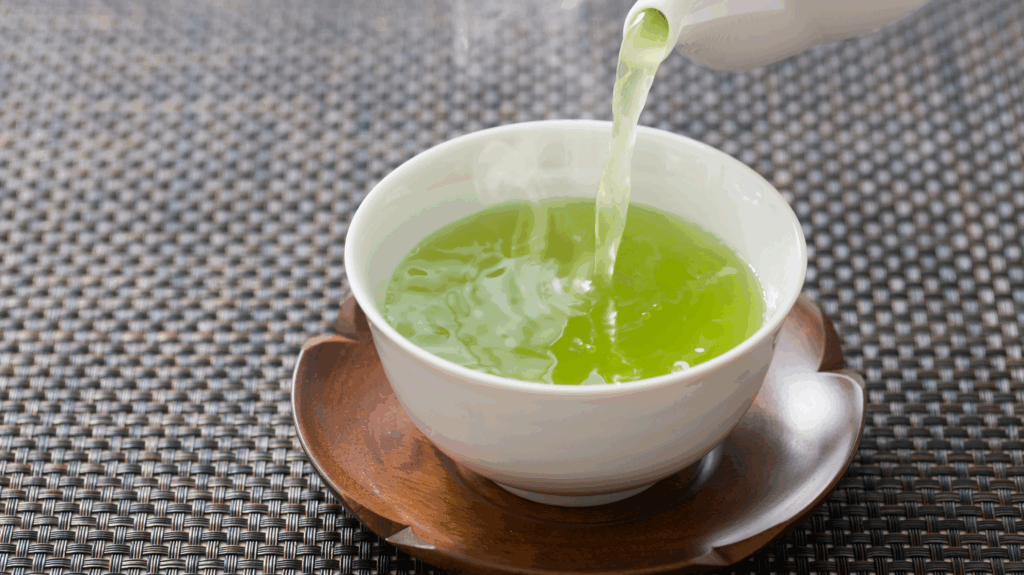
Menopause Bloating – Why It Happens (And What To Do About It)
Menopause bloating can be uncomfortable to say the least. It can also dent self esteem and cause confidence issues. With that in mind, clearly we need to do something about it!
The first step to ridding the bloat is to understand what it is, where it comes from and why it’s happening. Then, we’ll explore strategies that’ll help you with menopause bloating.
Ready? Let’s go!
Is menopause bloating common?
Unfortunately, menopause bloating is common. A study by Jude Bladder Health reported that a staggering 63% of women in perimenopause and menopause sited bloating and gut health issues as one of the main symptoms of this transition. So, menopause bloating is super typical and can often be mistaken for weight gain.
What causes bloating in menopause?
Menopause bloating is mostly down to the change to your hormone levels. The hormones that can cause you to feel bloated are specifically falling oestrogen and progesterone levels, which can, in turn, cause problems with water retention and digestion.
When this happens, the way your body manages fluids changes and so does the way your body digests food. As a result, you’re left with excess water and a slower metabolism, leading to menopause bloating.
However, it’s not 100% down to fluctuating hormone levels. On top of this, there are other factors that can cause bloating in menopause, such as:
- Your diet – specifically foods that are high in fibre and sugar, causing gas and bloating
- Swallowing too much air when eating or chewing gum
- Drinking fizzy drinks
- Underlying conditions, such as irritable bowel syndrome (IBS)
What does menopause bloating look and feel like?
If you’re wondering whether you’re suffering from weight gain or menopause bloating, it’s worth understanding what these both look and feel like.
In terms of the difference between weight gain and bloating in perimenopause and menopause, it’s about considering what the bloat feels and looks like. Bloating, unlike weight gain, makes your tummy feel:
- Tighter and fuller
- Menopause bloating often feels like your tummy is fully stretched out or full, even if you’ve not eaten all that much
- Swollen
- This is often the symptom that is most confused with weight gain in menopause.
- Painful and/or uncomfortable (menopause tummy ache is a real thing!)
- Pain due to menopause bloating can feel like a pressure pushing down on your abdomen. This pain ranges in severity from person to person.
- Increased rumbling and gas
- If you’re perimenopausal or menopausal and you’ve been experiencing more gas than usual, you can blame your transition! (Unless, of course, you’ve eaten a huge number of Brussel sprouts.) This is the case, too, for a rumbling tummy.
- Bloating that comes and goes sporadically
- Unlike weight gain, bloating can come and go. It can crop up every day at different times. On top of this, specific foods and drinks may make your menopause bloating worse.

Things you can do about menopause bloating
When it comes to menopause bloating, you’re not inevitably doomed. There are certainly things you can do about it, and many of these strategies involved adjusting your lifestyle.
So, let’s take a look at things you can do about bloating in menopause.
1. Eat foods with anti-inflammatory properties
The importance of nutrition can’t be overstated when it comes to menopause bloating (and most of the other menopause and perimenopause symptoms, if truth be told!). It’s all about eating foods and drinks that help with bloating, as well as avoiding the ones that make it worse.
The best foods to combat menopause bloating include:
Cucumber
Made up of around 95% water, which is critical for hydration. Seeing as water retention can be caused by dehydration, it’s no surprise why cucumbers help get things ticking over again.
Dehydration can also cause bloating. That’s why studies suggest that cucumbers help with IBS symptoms, too.
Avocado
Avocados are excellent foods for most menopause symptoms, including bloating. They’re full of folate, vitamin C and vitamin K.
Plus, they’re jam packed with potassium, which works to balance fluids and salt levels inside the body. As a result, this process prevents water retention, which can, of course, cause bloating.
Avocados are also high in fibre, which aids with constipation and digestion. In turn, this helps with bloating.
Berries
Strawberries, blackberries and blueberries are excellent for menopause bloating. They’re full of antioxidants and vitamins that help with conditions like IBS.
Berries are also full of fibre, which helps with your digestive system, tackling bloating.
Yoghurt
Natural yoghurt and Greek yoghurt is full of probiotics which feeds your gut healthy bacteria. It’s been shown in studies that monitored how probiotics aid with IBS that yoghurt helps with bloating and overall inflammation.
Bananas
Not only are bananas an excellent and portable snack, they’re also foods that fight bloating. With a huge amount of fibre and potassium content, these snacks help with digestive issues and water retention.
You can double up the benefits of these superfoods by starting your day with a Banana Berry Smoothie.
Turmeric
You may already use turmeric in dishes like curries and soups. Try to incorporate turmeric into more of your meals if you’re struggling with menopause bloating.
Turmeric contains something called curcumin, which – according to various studies – aids with gut health and helps to reduce IBS symptoms, including bloating.
Green tea
Swap out regular tea and coffee with green tea if you’re suffering from bloating during menopause. It’s jam packed with antioxidants which can help with inflammation.
People who struggle with IBS find that green tea helps with symptoms, including bloating.

2. Exercise regularly
Exercise isn’t only good for your waistline and your heart. It’s also a great strategy to reduce bloating. This is down to a few reasons:
- Exercise improves digestion
- Movement is a great way to manage stress levels, which – when built up – can trigger bloating
- When you exercise regularly, you’ll be helping your body to get rid of unnecessary water and salt via sweating
- And, of course, exercise helps with meno weight loss
Aerobic activity, in particular, encourages food to move through your digestive tract. If you’re constipated and/or gassy, exercise will help. In turn, you’ll reduce bloating.
3. Drink lots of water
Water is a magical thing. We’re told to drink more for so many aliments – from skin concerns to vaginal dryness and even itchy ears (yes, really!) – water is one of the world’s greatest healing gifts. Water, too, helps with menopause bloating.
Bloating is often helped by prioritising your digestive system and by implementing strategies that reduce water retention. Water helps with both of these things.
Proper digestion is impossible without water. Staying hydrated helps with softening stool, meaning water aids with constipation. Constipation is one of the most common causes of bloating in menopause.
While you may think drinking more water will make water retention worse, it actually does the opposite. It flushes out your system, allowing your body to release excess water and sodium, which contribute towards bloating. Doing this will also help rid your body of toxins and waste, too.
Let’s also remember that menopause wrecks havoc on your hormone levels – specifically oestrogen. Falling levels of oestrogen can actually impact fluid balance. So, by drinking enough water and flushing out stored fluids, you’re helping to balance out hormone changes.

4. Manage your stress levels as best as you can
Stress really can cause bloating. And, unfortunately, stress levels are often risen during perimenopause and menopause.
But how does stress cause bloating in menopause?
When you’re stressed, these heightened stress levels and cortisol response can create a barrier for digestion. When this happens, water retention increases and your gut microbiome can be affected.
A slower metabolism can be made worse by stress. This, in turn, leads to increased gas and bloating.
Not to mention, stress can impact your gut microbiome where the good bacteria inside your gut sits. When this is knocked off kilter, you may end up with digestive problems and you could even become more susceptible to food sensitivities and intolerances.
It’s crazy how much of an impact stress has on your body! But managing your stress levels will certainly aid with menopause bloating.
Techniques to manage stress levels
Learning how to manage stress levels isn’t an easy lesson to master. Everyone is different and the way they respond to stress and techniques that help with said stress is unique to them. When it comes to stress management strategies, it’s all about experimenting with what works best for you. That said, if you don’t know where to start, try the following stress management techniques.
Meditation
There are a few different types of meditation, such as:
- Guided meditation
- You can find guided meditation videos anywhere on Youtube. The leader, as the title suggests, guides you through the session, often using themes to tap into certain emotions and states of mind.
- Mantra meditation
- This is when you repeat a word, phrase or sound for better focus and to work on the internal thoughts in your mind.
- Visualisation
- Visualisation is something you’ve probably done before, even if you haven’t known about it. Have you ever, for example, set goals in the workplace?
Setting goals is all part of visualisation. Others may call it manifestation, and it surrounds creating mental images with the purpose of evoking certain experiences, feelings and/or goals.
- Visualisation is something you’ve probably done before, even if you haven’t known about it. Have you ever, for example, set goals in the workplace?
Mindfulness exercises
Another way to manage your stress is by doing mindfulness exercises. Many people confuse mindfulness with meditation, however they are different practices. Here are some good techniques to start off with:
- Breathing exercises
- Close your eyes and really focus on your exhalation and inhalation. Notice the rising and falling of your abdomen or chest. Many strategies follow the 4-7-8 technique, where you inhale for 4 seconds, hold your breath for 7 seconds and exhale for 8.
- Mindful eating
- When eating, pay attention to your senses, particularly the taste, scent and texture of your food. Focus on your hunger and fullness levels.
- The five senses exercise
- This exercise is particularly powerful when experiencing panic attacks. When you’re panicking, name something around you for each of your senses. Something you can see, hear, feel, taste and smell.
Do yoga
Yoga is great because it combines mental health strategies with physical exercise, making it an excellent menopause bloating strategy. The physical postures merge with meditative breathing techniques, making this holistic approach a great way to relax during menopause.
Spend time outside
Whether you choose to read outdoors or tend to your garden, being outside in nature can help you feel grounded. As a result, you’ll be lowering your stress levels.
Avoid trigger foods
What you eat can directly impact how you feel as well as your menopause bloating. You should avoid foods that are high in fat and sugar, as these can often cause bloating and raise stress levels.
Make time for self care
Self care looks different for everyone. Do what brings you peace and joy and do it consistently. For some, a good sing-song in the shower works wonders. For others, getting lost in a book or your favourite movie can push stress to the curb.
Talk to someone you trust
Menopause can be a lonely time, often sparking anxiety and other mental health issues. It’s really important that you’re able to open up about your experience.
Speak openly about how you’re feeling to someone you trust. This often allows you to feel like a weight has been lifted, releasing some of the stress.

5. Focus on weight control
While it may be confusing trying to figure out whether you’re suffering from menopause bloating or weight gain, I highly recommend you focus on weight control when you’re perimenopausal and menopausal.
Weight gain is super common when your oestrogen levels begin to fall. At this time, you’re likely to gain more abdominal fat – even if you have never struggled with weight concerns in the past. This, as a result, puts a lot of pressure on your digestive system and can trigger bloating.
When you work on weight loss and you shed weight around your tummy section, you can relieve the pressure and can get your digestive system back in full swing.
Plus, weight loss can encourage consistency when it comes to going to the toilet. Constipation is another common side effect of perimenopause and menopause, and it can often lead to bloating and excessive gas.
If menopause bloating is a concern for you, focusing on weight control will work wonders, not only to reduce bloating but to make you feel better about yourself, too.
Menopause bloating – when to see a doctor
While menopause bloating is significantly common during this transitional period, a doctor should assess any prolonged or painful bloating.
You should never feel embarrassed to speak with a healthcare professional about any menopause or perimenopause symptom. Remember, they are there to help and advise you.
Never ignore bloating that persists for more than 2 weeks. On top of this, if the bloating is impacting your daily life, don’t struggle alone and seek treatment.
Furthermore, if you are experiencing other symptoms alongside bloating in menopause, you should seek medical care. These symptoms include:
- Nausea and/or vomiting
- Diarrhoea and/or constipation
- Significant weight loss
- Blood in your stool
- Finding it difficult to swallow
- Persistent abdominal pain
Menopause bloating – in a nutshell
As your hormones change and your oestrogen levels drop, menopause bloating is a typical symptom. Factors such as your diet and underlying conditions can contribute towards bloating, but there are changes you can make to reduce the bloat.
Eating foods that help with bloating, making sure you’re exercising regularly, staying hydrated, managing your stress levels and focusing on weight control will help with bloating and discomfort.
However, you shouldn’t struggle alone. If you are experiencing bloating for longer than 2 weeks persistently after changing your diet or if your bloating comes with other symptoms, such as nausea and vomiting, digestive issues, weight loss, blood in your stool, finding it difficult to swallow or abdominal pain, you should seek medical care.
While bloating in menopause is common, it’s also a sign of other conditions, such as IBS or other gastrointestinal problems. So, remember to keep your doctor in the loop!
Leave a Reply
- free ebook alert -
WHAT TO EXPECT WHEN YOU’RE
going through the menopause
Demystify your understanding of what’s happening to you. Arm yourself with solid, game-changing information to support you through this challenging phase of your life.
grab your copy now →
WHAT TO EXPECT WHEN YOU’RE
going through the menopause